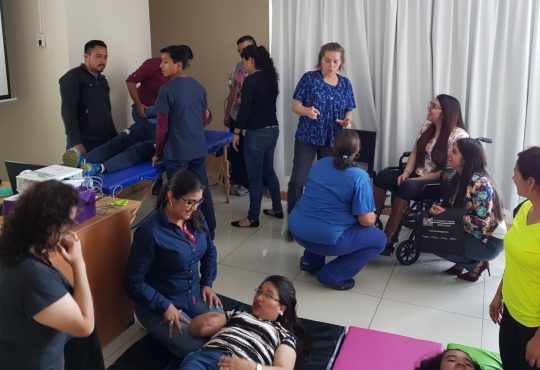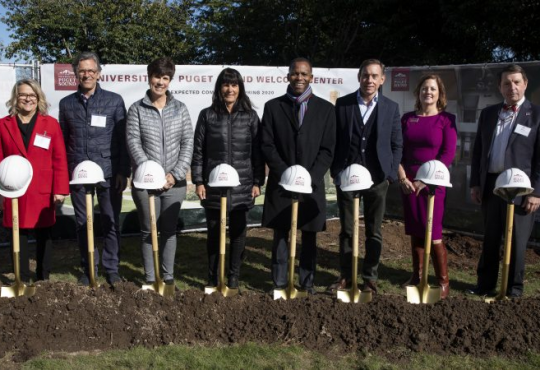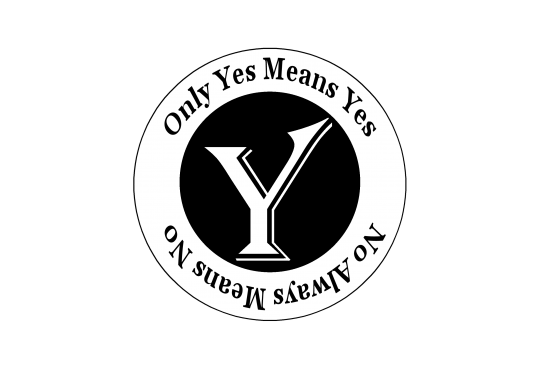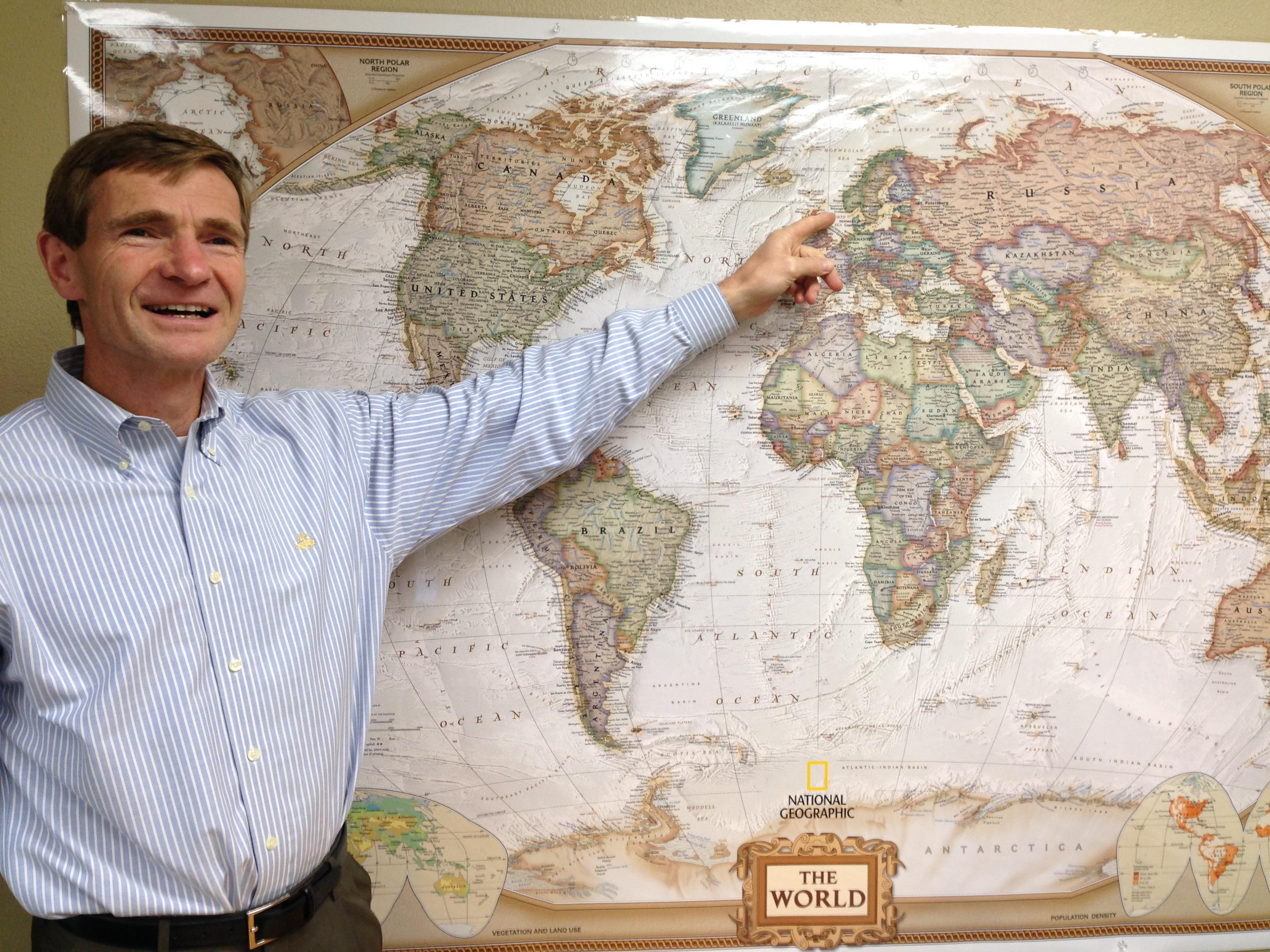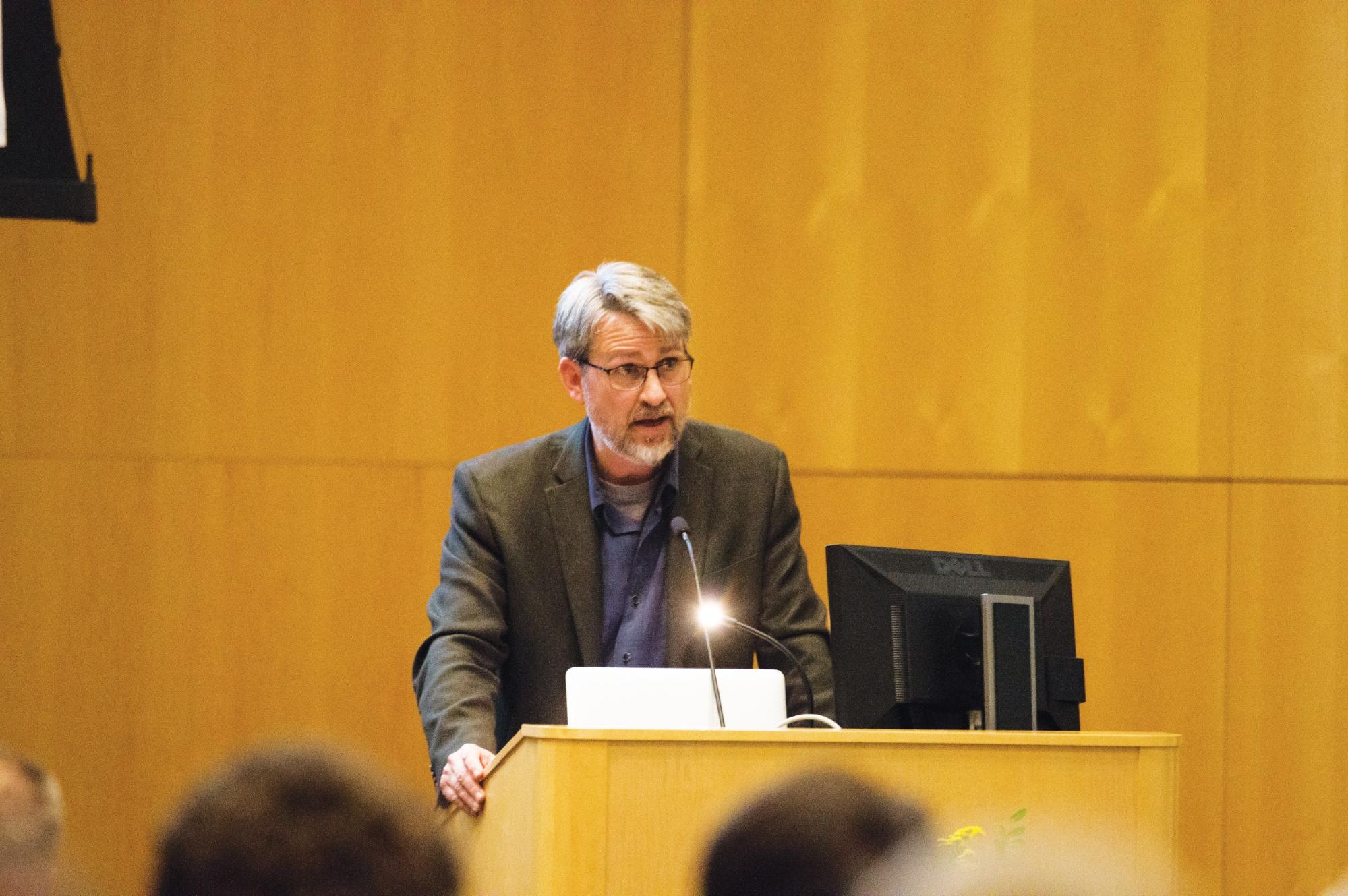
The John D. Regester Faculty Lectureship is an annual November tradition at the University of Puget Sound. The lecture series commemorates the late John D. Regester, a former philosophy professor and Dean of Puget Sound’s graduate school.
Going into its 46th year, the lecture series featured history professor Dr. Douglas Sackman this year. Previewing his upcoming book titled, “American Panorama: Rediscovering the History of the North American West,” Dr. Sackman gave a detailed counterhistory of the creation of the American West.
The lecture began with a brief introduction from English Professor Dr. Nancy Bristow. “Doug’s students have learned to view the worlds of the past as meeting places,” Dr. Bristow said. “It is a place where we understand our responsibility as human selves.” Though the introduction was brief, Dr. Bristow’s words highlighted Dr. Sackman’s status as a role model and inspirational figure on campus.
Following Dr. Bristow’s introduction, Dr. Sackman began his address with an overview of his project, which he said “aims to paint a broad history the West.” This project “both made homelands or destroyed those of others.” This was an important motif for the evening.
Though Dr. Sackman’s speech covered a vast amount of time and space, his message was clear. The project of American democracy is undemocratic. Instead, he argues, it is premised on the belief that “the white race alone would command the earth.”
The racial hierarchy that Dr. Sackman discussed was seen as America being the starting point of history. “Americans have long embraced the vision that they are leaving history behind,” Dr. Sackman said. “The future is painted as the unfurling of American democracy across unrelated lands. America is immaculately conceived.” This romanticized view of the West made heroes of its settlers while dehumanizing the indigenous.
2016 saw the #NoDAPL protests, which sought to block the construction of an oil pipeline through Lakota lands. Dr. Sackman went on to note that the events on the Lakota’s Standing Rock Reservation are evidence that this racial hierarchy still exists, just in a different form.
The lecture was wrapped up with several observations: “Where do we stand as people?” Dr. Sackman asked the audience. Noting the tumultuous time that both the city of Tacoma and our country face in their relationship to immigrants, Dr. Sackman expressed his belief that we are seeing the “boundaries of race and opportunity being policed.” He ended by posing a question to the audience: “Who can give us a democratic vision?” With that, the lecture was opened up to questions from the audience.
The first question came from a literature professor who shared her thoughts on the lecture. “It’s not history. It’s poetry,” the professor remarked. “Why did you choose to tell the story of the West in this way?”
“It’s a unique way to tell a story,” Dr. Sackman replied. “How do you tell the story of a vast region over a vast amount of time?”
Dr. Sackman’s poetic tone was essential to his visceral portrayal of the West. The historic narrative Dr. Sackman presented wasn’t just an alternative interpretation of the history of America. Rather, it was a challenge to the mainstream ideas of the relation that society has to land, nature and indigenous folk.
Though Dr. Sackman’s lecture is difficult to articulate through words alone, it was clear that attendees left the Tahoma room with many thought-provoking ideas to consider.

